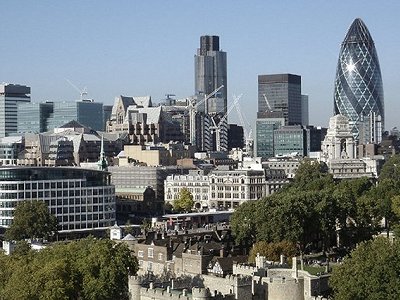
MORE EQUAL THAN OTHERS
The difficulty we have in agreeing shared values means the wealthiest and the poorest grow further apart
Inequality has become a fashionable topic again after years of neglect. However, like discussion of immigration, it produces more heat than light, which is why we might welcome books like Inequality: What Can Be Done? by Anthony Atkinson, a professor at the London School of Economics who actually has a measure of inequality named after him (the Atkinson Index).
After a prolonged period of developing inequality within the UK, there is disquiet among the public over outcomes for the very rich and the very poor. This is telling, as one of the surest ways of tackling measurable inequality is to flatten incomes in the middle, so that the difference in income, say, between a doctor and a refuse collector is lessened. Few argue for this, so attention is focussed on the extremes where there are, indeed, genuine concerns.
The Victorian concept of the deserving and the undeserving poor has been revived in post-crash Britain but most of the attention is on the latter category, if calculated news headlines are to be embraced. However, the growth in households where people work long hours on minimum wages, often taking second jobs to supplement the shortfall, is worrying. In a developed economy, anyone willing to work hard should be able to earn a decent living, but this has become less true for some as they struggle to pay the bills. Meanwhile, there are new categories of deserving and undeserving rich: some who by enterprise and ingenuity have made their way in business and others who either inherit huge wealth or seem to be gifted salaries and bonuses which are out of all proportion to the value they add to a company or wider society.
The Jubilee laws of ancient Israel, a Bronze Age society locked hopelessly in the past for most tastes, nevertheless cherished a number of laws which sought to limit the kind of huge discrepancies in wealth and welfare which tend to emerge in human society. Restrictions on the accumulation of land, limits on interest, the cancellation of debts and the protection of workers by the Sabbath each, in theory, afforded dignity and opportunity to every generation. In practice, these laws were often ignored and the prophets spent much time lamenting their wilful neglect. Jesus spoke at length about the responsibilities of wealth and the needs of the poor and the parable of the Rich Man and Lazarus shows what happens when some duties are abandoned. Most of us, wealthy by global standards, shift uncomfortably in the spotlight of such teaching.
Widening gaps between the very top and the very bottom in a society are not good for its overall health; this much has been shown by research (see The Spirit Level by Richard Wilkinson and Kate Pickett). Sustained and exaggerated inequality is bad for human relationships, as groups of people begin to live utterly different lifestyles which inoculate the rich from exposure not just to the poor but to most without the same buying power. Those who seek to entrench this state sometimes suggest that criticism is merely jealousy on the part of others, which is the kind of response one would expect in a materialistic culture where owning things establishes status.
In our lifetime, the idea that equality of outcome matters (i.e. that pay differentials are minimised) has given way to equality of opportunity (i.e. that everyone should receive a good education and be able to take it from there). We are more aware now of the weaknesses of equality of opportunity, laudable though it is as a goal. Equality of access is just as important, as the people you or your family knows privileges some more than others. Once families make gains, they are more likely to become – and to want them to become - entrenched for the next generation, making opportunities less even for all.
Despite these challenges, ever increasing inequality is not inevitable and every society can do a number of things to inhibit it, if it chooses. That we are waiting for this moment suggests once more the difficulty we have in articulating shared values.
POPULAR ARTICLES

Obama's Covert Wars
The use of drones is going to change warfare out of all recognition in the next decades.

Through A Glass Starkly
Images of traumatic incidents caught on mobile phone can be put to remarkable effect.

What Are British Values?
Is there a British identity and if so, what has shaped the values and institutions that form it?


